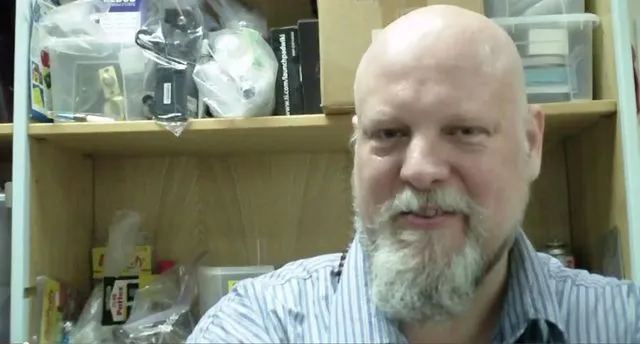Floating through hackerspaces - Jonas S Karlsson

Meet Jonas S Karlsson, a floating member of hackerspaces around the world, whose ‘other interests’ include film festivals, movie-watching with friends, cooking, travelling, meeting new cultures, reading science fiction, practising Tai Chi, Zen, fencing, meditation, and driving his Yamaha XJ750 through Europe!
For starters, a hackerspace (also known as hacklab, makerspace, or hackspace) is a community-operated workspace, where people with common interests, often in computers, technology, science, digital art or electronic art, can meet, socialise and/or collaborate, as Wikipedia explains. “Hackerspaces can be viewed as open community labs incorporating elements of machine shops, workshops and/or studios where hackers can come together to share resources and knowledge to build and make things.” Going into the etymology of the word hack, Urban Times notes that hacking has always existed, in some form or another, since the beginning of humanity, when humans had to hack their environment to create tools, resources, and survival skills.
During a brief interaction with YourStory, at Dimsumlabs, Hong Kong, Jonas begins by saying that hackerspace is not a place for talking; it is a place for making something tangible. He describes Sweden, his country, as one with a hacking culture. (At the time of writing, though, a search for ‘Sweden’ and ‘hacking’ brings up the news of Pirate Bay founder extradited from Sweden. Something that explains the alternative, ‘makerspace,’ that is often used, as an acceptable moniker.)
Jonas reminisces his days in the Silicon Valley when hackerspaces did not exist. After joining in the efforts to create one, in San Francisco, he moved to Australia, to do something similar. Routinely, Jonas is lecturing at different hackerspaces. Such as, a talk about the Panda programming language, in XinCheJian.com hackerspace in Shanghai; and, at Codeaholics, Hong Kong. Panda, he describes as “a new functional, object oriented, reactive, programming language, using simple chaining syntax, no loops, no ifs…”
A PhD on ‘Scalable Distributed Data Structures for Scalable Parallel Storage Engines,’ Jonas used to work at Google, where he designed and built Google Megastore used by many projects, among others, Google App Engine. “Also built and designed the instant indexing engine of Google Wave, as well as its system wide indexing load balance and recovery system providing reliability of data and persistence of user action, making sure no updates were lost.”
His intro begins with a ‘news’ section, thus: “I gave notice at end of June, 2010, and quit Google! Now I’m travelling around the world visiting friends, and giving talks and consulting about how to design and implement for scalability. Do you need scalability design review/help for your successful internet services? :-)”
His website’s name is a phonetic guide. “Yesco is how an American should pronounce my initials J-S-K to make it sound almost like a Swede would do,” explains Jonas.
Imagine hacking in his company.







